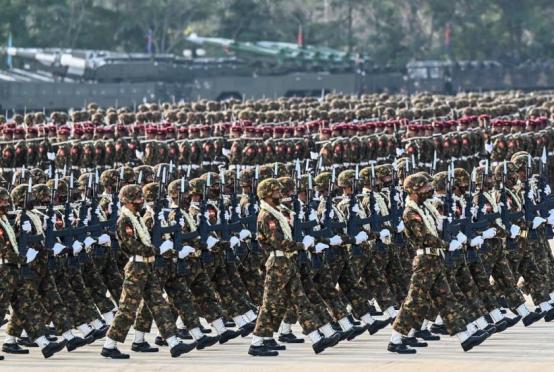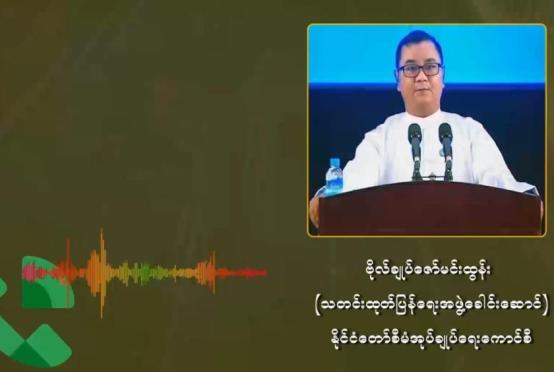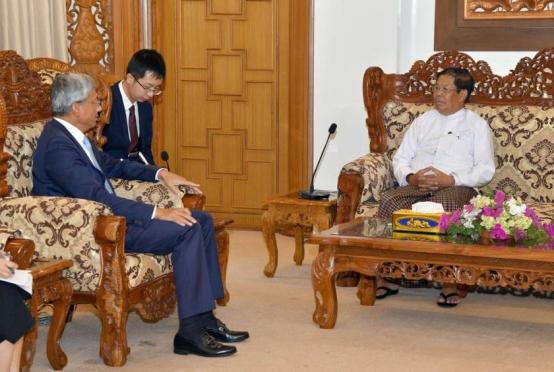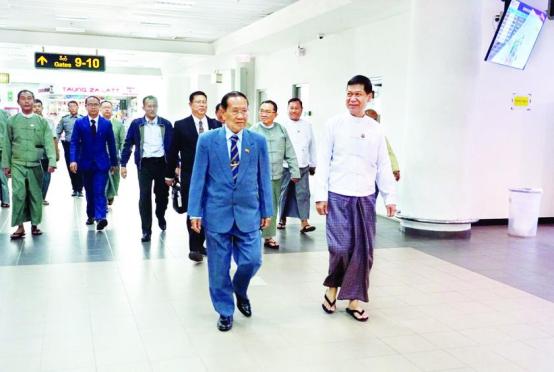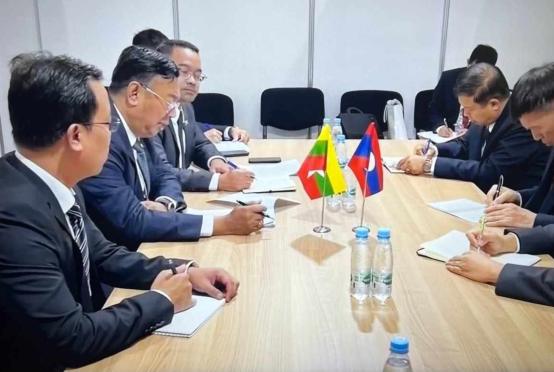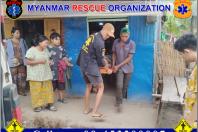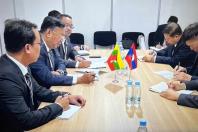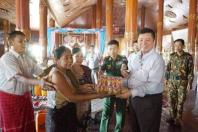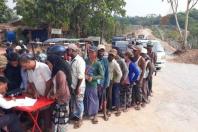Myanmar did not commit genocide although there may be violations of human rights in armed conflicts said State Counsellor Aung San Suu Kyi.
She also claims that the violators will be taken action against in line with the law, as part of the State Counsellor’s speech broadcasted at Myanmar Radio and Television (MRTV) on December 18.
“We built our defence firmly on a foundation of honesty and respect for the rule of law, never losing sight of our ultimate goal, which is sustainable peace and harmony among all the communities in our country. Our legal team understood all our concerns as well as our aspirations and I would like to take this opportunity to express our deep appreciation for the outstanding legal expertise, dedication to justice and good will that they brought to our case. Every country passes through difficult times and Myanmar is no exception. Such trials provide us with an opportunity to assess our strengths and weaknesses, to reinforce one and rectify the other. To grow and develop, we need the courage and wisdom to face challenges honestly and constructively. The challenge that we are now facing the ICJ stems back not just to the events of the last few years but to the missed opportunities in decades past to address the social, economic and political ills of Rakhine squarely. The past cannot be changed but we can make the best of the present to enable us to build a happy future.
It fell to me to present to the Court relevant facts pertaining to the situation on the ground in Rakhine today, as well as the historical context of the roots of conflict, economic, social and military, in the region. This was particularly important as the Agent, Counsel and Advocates for The Gambia had neglected to address those issues and barely touched on the ARSA attacks that had triggered off the conflicts of 2016 and 2017. Neither was there any mention of the present armed conflict between the AA and the Tatmadaw, which has added to the complexity of the challenges in Rakhine. I did not dispute that in situations of armed conflict there could have been violations of human rights and infringement of universally accepted norms of justice and rule of law. However, these do not amount to genocide or intent of genocide and we are willing and able to prosecute wrongdoers. Myanmar is committed to defend the lawful rights of all peoples in our country through our own justice system, military as well as civil, in accordance with our Constitution. I also apprised the Court of the concrete steps we have been taking to address what the Kofi Annan Commission described as complex challenges of low development and poverty rooted in enduring social conflict between the communities.”
The Gambia had applied for the Court to impose provisional measures on Myanmar, measures that could have a negative impact on efforts aimed at reconciliation and sustainable peace and development. In their presentations, our legal team confined their arguments to whether the Court should indicate provisional measures. Professor Schabas pointed out that the case as presented by the Gambia did not meet the plausibility requirement for provisional measures, she said.
In the closing statement, she expressed her hope that the Court would make, “with the wisdom and vision of justice” a decision that would “help us to create unity out of our diversity, to develop the potential of our people, and to meet the challenges of a nation in quest of sustainable peace and development.”
She concluded with the formal presentation of the final submissions of Myanmar: “In accordance with Article 60, paragraph 2, of the Rules of Court, for the reasons given during the hearing from 10 to 12 December 2019 and any other reasons the Court might deem appropriate, Myanmar requests the Court:
(1) to remove the case from its list;
(2) in the alternative, to reject the request for the indication of provisional measures submitted by The Gambia.”
She continued with her televised speech that “The support of our people, given generously and unquestioningly, not just in Myanmar and The Hague but all over the world, was a great source of strength to us when we presented our case at the ICJ.
Our case was presented honestly and fully, and I believe the arguments of our Counsel and Advocates were sound and in accordance with the highest norms of justice. Once again I would like to thank all the members of our legal team and the members of our delegation, and their counterparts at home, for their dedication and excellent work.”
Members of the team who came with us to the Hague will be taking part in a discussion on the proceedings and the legal, political and diplomatic aspects of International Criminal Justice, which will be aired today on MRTV.

